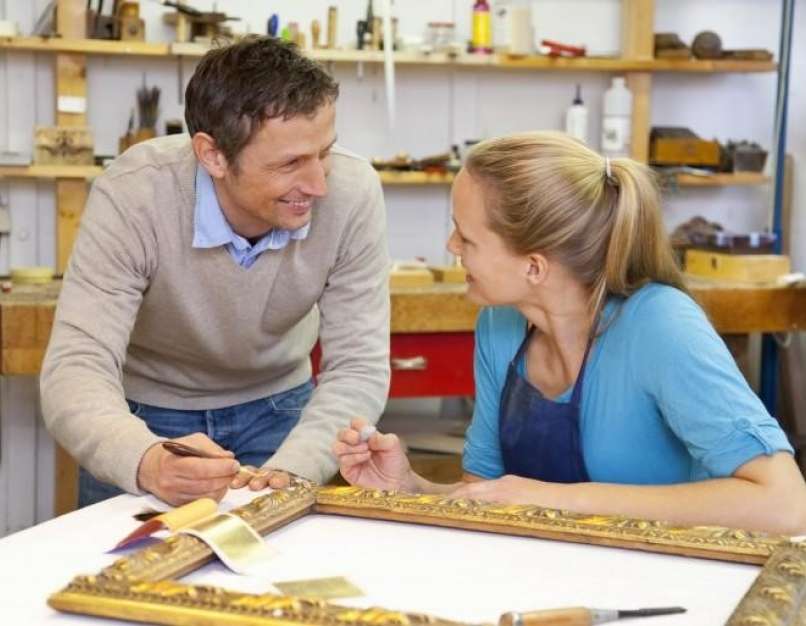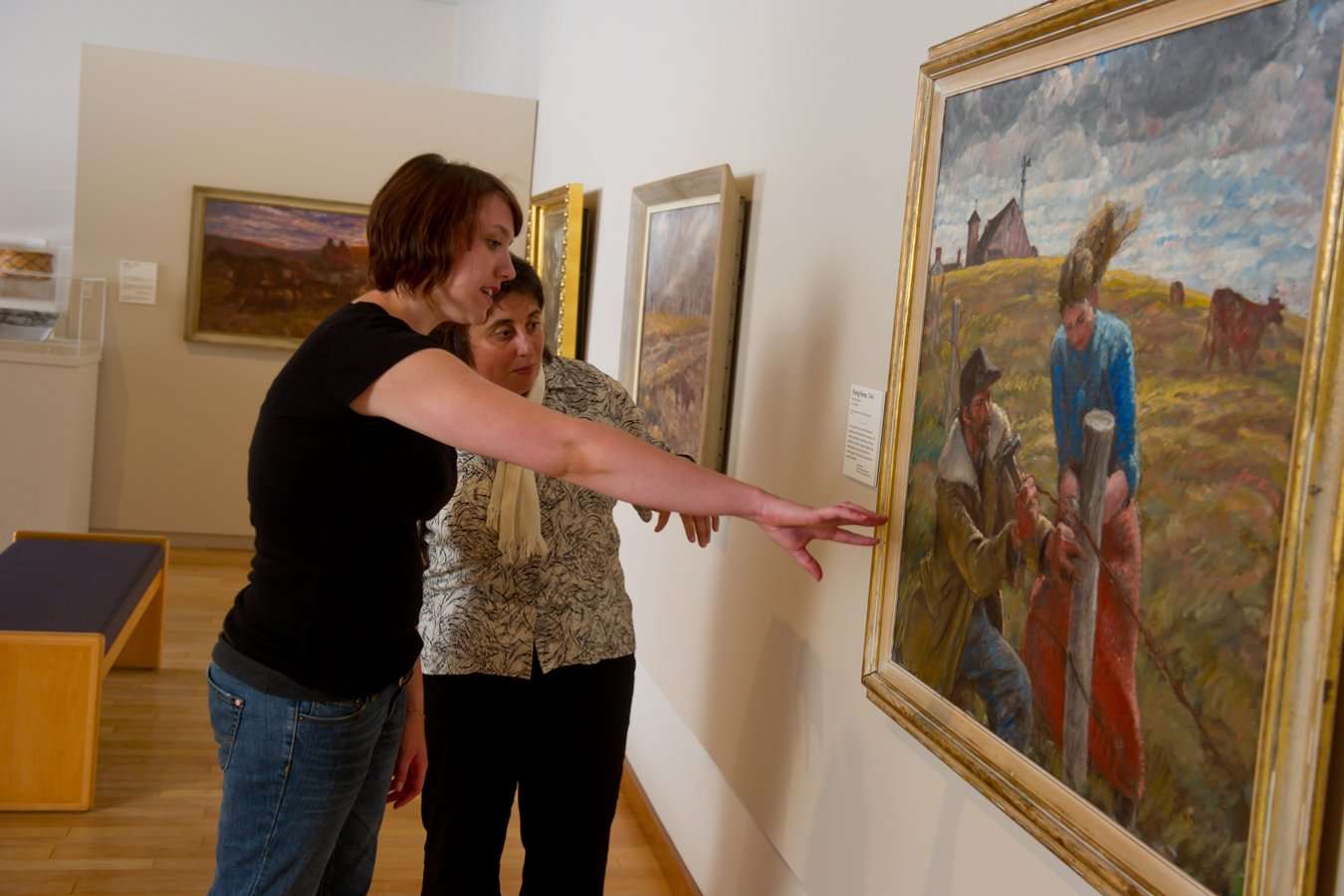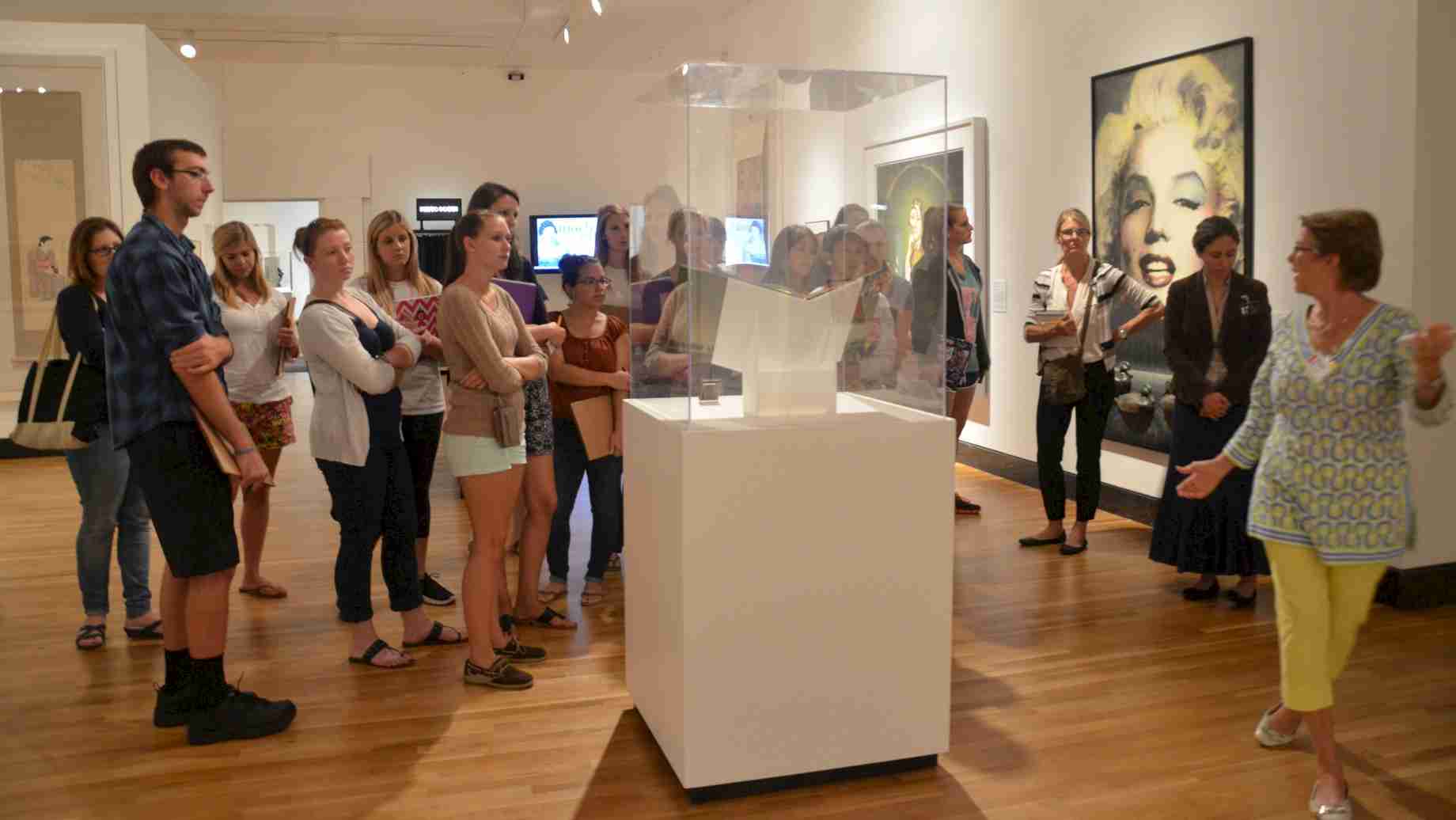Earn Your Museum Studies Degree Concentration Online
The museum studies bachelorâs degree concentration at Arizona State University is the first of its kind offered 100% online in the U.S. Regardless of your location, youâll have access to the undergraduate programâs rigorous curriculum. It features coursework on the study of art and all facets of museums, from business and cultural tourism to fundraising and marketing. Youâll take courses developed and taught by recognized professionals in museum studies. Youâll explore art galleries, preservation societies, public art programs and more from global, historical and cultural contexts.
Through coursework and internships, youâll become knowledgeable in art history, museum practice and visual thinking. Youâll gain the experience and skills needed to pursue careers in local, national and international museums. These skills can give you a competitive advantage when seeking employment with your art degree with a concentration in museum studies bachelorâs.What skills will I earn with a museum studies degree?
- Creative and critical thinking.
- Problem solving and quantitative reasoning.
- Reading ability in at least one foreign language.
Of Applied Sciences & Professions
Museum studies, or museology, provides a holistic view of museum work, in a social, cultural and political context. Museum studies present developments within the field of management, marketing and education and offer basic concepts regarding the development of governmental policies concerning cultural resource management. The museum studies discipline covers theories and concepts from art, history, ethnic studies, archaeology and anthropology.
Degrees in museum studies cover: museum communication, preservation and conservation of heritage materials, museum exhibition content development, museum and gallery marketing, and more.
Generally offered at the master’s and doctorate level, museum studies aim to provide theoretical and practical skills required to operate a museum. Seen as a part of the information and library science area, museum studies will equip students with an analytical and complex understanding of culture and social developments. A museology specialist has a solid cultural background that allows making connections between works of art and history, or between technological objects and scientific advancements. Students will also develop an aesthetic eye, as well as critical thinking skills.
Career prospects for museum studies graduates cover jobs like: museum registrar, archivist, curator, museum technician, museum director, exhibit coordinator, cultural heritage information professional, museum librarian.
Directory Of Museum Studies Programs Us
This is a growing list of museum studies programs in the United States of America. We also partnered with Museum Masters Review to start a critical discussion about Museum Studies programs and are seeking input from everyone who wants to be involved in that process including the universities and programs.Our first step was this survey. We want to know what Museum Professionals think is important when attending Museum Studies programs.
| State |
Recommended Reading: 9 11 Memorial Museum Discount Tickets
What People Are Saying
No one knows more about what you want from a university than the people who have already gone through the processour graduates. Read what our alumni have to say about our programs, and youll see why so many nontraditional students choose the OU College of Professional and Continuing Studies as their first step toward a better career.
What Can You Do With A Museum Studies Degree Concentration

Graduates with a bachelorâs in art with a concentration in museum studies are well suited for a range of roles in museums, art galleries, archives, historical societies, art-based organizations and cultural institutions. You can typically pursue entry-level assistant positions for curators, archivists, public relations specialists and more with an undergraduate museum studies degree. However, you might need more education, experience and training to land professional positions in museums and related organizations.
A masterâs degree in museum studies prepares students for professional roles in museums. These higher-level roles may include curators, registrars, public relations specialists, educators and many other positions. For instance, a masterâs degree in library science is necessary for a position as an art librarian. A Master of Business Administration may be necessary for museum administration. Also, a doctoral degree is often necessary for curatorial positions. We encourage you to look into the different educational requirements for museum careers you might want to pursue in the future.
Also Check: Hotels Near Intrepid Sea Air Space Museum
Museum Studies Online Certificates
Organizing a museum is an art, and one you can study by earning a certificate in museum studies online. By taking four to six courses over six months to one and a half years, you can learn what it takes to be a museum practitioner in areas such as curation, management, education, and care.
In many cases, your courses in your certificate program will be master-level courses, enabling you to earn sixteen to twenty-four credits to complete your certificate or, in some cases, transfer into a masters-degree program. In other cases, you might pursue an online museum studies certificate at the undergraduate level. In such cases, youll earn twelve to eighteen credits to complete your certificate or potentially transfer into a bachelors degree program.
Preserving The Past Observing The Present: Museum Studies
There is a lot that can be learned online, but the internet will never be able to replace the feeling of walking into a museum and seeing the exhibits with your own eyes. If you are excited about the preservation of history and seeing historical items preserved for future generations, then a career in the museum industry might interest you. An online degree in museum studies prepares students for an exciting career in a museum or preservation environment. Graduates earning a museum studies degree are experts in artifact retrieval, conservation, exhibition, art history and culture. These skills generally apply to the appreciation or investigation of art, science, history and nature.
Don’t Miss: Museum Park Condos For Sale
A 21st Century Curriculum
New demands and challenges are emerging in every aspect of the museum landscape. Focusing on the needs of the 21st-century museum professional, this program combines theory and practice while emphasizing digital strategies in todays museum and offering training on new models of education, curatorship, exhibitions, and business strategies to create the visionary leaders of tomorrows museums.
Museum Studies Degree Information
Students who pursue a museum studies degree will become extremely well-versed in human culture. They will learn the ethics surrounding museum collections and how museums edify, elucidate and enlighten. Students will become experts on art, history and culture and learn how to share their expertise with others.
You May Like: Glass Museum In St Petersburg
Your Bachelors Degree From Inspiring Art And Design Faculty
ASUâs Herberger Institute for Design and the Arts is home to world-class scholars, artists and designers who inspire students to shape the future. Our facultyâs research is grounded in the transformative power of art and its ability to change the world. Faculty research areas include:
- Arts and design for social justice.
- Arts, education and arts-integrated education.
- Arts, entrepreneurship and cultural policy.
- Community engagement and public policy.
- Creative health collaborations.
- Design, arts, science and engineering.
- The study of creative work.
What Are The Program Requirements For Completion
A total of 18 s.h. of work is required for the Museum Studies Certificate, including 12 s.h. of foundation courses, 3 s.h. elective course and a 3 s.h. museum professionalism course with a maximum of 6 s.h. from another major or minor can be applied to the certificate.
Below is an outline of the courses offered and certificate requirements. You can read about specific museum studies courses in the general course catalog.
CERTIFICATE REQUIREMENTS: * indicates online courses
Foundations Course : MUSM:3001 Introduction to Museum Studies *
Professionalism Course : MUSM:4080, MUSM:4082 or MUSM:4084 *
Choose FOUR courses from three of the following four Focus Areas
Collection Care and Management
MUSM:3003 Natural History Research Collections
MUSM:3200 Collection Care and Management *
MUSM:4200 Museum Objects
Exhibition Development and Public Education
MUSM:3004 Exhibition Planning *
MUSM:3105 Engaging Museum Audiences *
MUSM:3125 Museums in a Digital World *
MUSM:4210 Museum Without Walls
History, Theory, and Culture
MUSM:2850 Museums and Social Justice
MUSM:3120 Museum Origins *
MUSM:3237 Politics of the Archaeological Past
MUSM:4081 The Art Museum: Theory and Practice
MUSM:4130 Museum Literacy and Historical Memory
MUSM:4310 Slavery Museums, Memorials and Statues
Museum Administration and Management
MUSM:3100 Historic House Management and Preservation *
MUSM:3131 Museum Evaluation and Visitor Studies
MUSM:3500 Nonprofit Organizational Effectiveness I *
Don’t Miss: Boston Museum Of Science Tickets
Will My Art Degree With A Concentration In Museum Studies Say ‘online’
No, Arizona State Universityâs diplomas donât specify whether you earn your degree online or in person. All diplomas and transcripts simply say âArizona State University.â Thatâs because ASU Online students learn from the same faculty and receive the same course content as in-person students receive.
Please note your diploma will state the degree you earn: Bachelor of Arts in art. Your concentration in museum studies will not appear on your diploma, but it will be noted on your transcripts.
What Type Of Career Opportunities Exist In This Field

Many students who pursue higher education in museum studies go on to become museum directors or curators. Other museum studies experts may become educators, archivists, conservation specialists, designers of museum exhibits or museum guides. When working as a curator you might find employment at historical sites, specialist or independent museums as well as museums that are funded by the government, local authorities or colleges and universities.
Recommended Reading: Hotels Near The Lightner Museum
Getting Your Degree Offline
Students who are foreseeing a career in the museum world can start with a Bachelor of Arts or Bachelor of Fine Arts from one of the many top brick-and-mortar colleges or universities that offer them. Students should major in a field that best relates to the type of museum they would like to work in and the position they would most like to attain. Once the BA or BFA is earned, students can proceed to a master’s degree in arts administration, library science, art history, art management or any related field. Students can consult with departmental advisers to help plan a curriculum that will make them most appealing to potential museum employers. The master’s degree is usually obtained within around two years. Some students may choose to move on to a doctoral degree in museum studies or a related field in order to maximize their appeal as a museum employee.
Be A Gatekeeper For Artifacts And Documents
Do you want to work in a museum, archive, library or other related fields? This certificate program builds your readiness. Learn the basics about museum work and gain insight into todays museum world.
Persons interested in pursuing the Museum Studies Undergraduate Certificate should meet with the Museum Studies Program Coordinator prior to applying for admission to review scheduling of projected course offerings.
Program requirements
Program restrictions
The cross-listed courses ART/MST 388 and ART/MST 488 may not be double-counted between an Art History major and a Museum Studies minor and/or a Museum Studies Certificate. In the event that a student is both an Art History major and a Museum Studies minor and/or doing the Museum Studies Certificate, these two courses will count only for the Museum Studies minor and the Museum Studies Certificate and NOT also for the Art History major.
Completion requirement
Attain a grade of C or better in all courses used to fulfill the certificate requirements.
Recommended Reading: Houston Museum Of Natural Science Discount Code
Museum Studies Degree Courses
Youâll take a range of art history and museum studies courses in the undergraduate program. Course topics include art from different periods of time and from all over the world. Youâll also have the opportunity to explore electives that pique your interests. These courses might include Art and Money, Anime, Art of the Comic, The Body and 19th Century Art, Representing Justice: Art, Law and Censorship, and more.
What Is My Earning Potential In This Field
Museum curators, who oversee collections and acquisitions, earn an average of around $51,520 a year, according to the Bureau of Labor Statistics. Archivists, who analyze and catalog the collections, earn roughly $50,250 on average. Museum technicians and conservators, who preserve and restore damaged works, reported a median income of $40,340 in 2015.
Who Can Take The Certificate In Museum Studies
The Certificate Program is open to any student, either non-traditional or undergraduate, with a minimum 2.0 GPA who is not enrolled in the Graduate College at the University of Iowa.
Graduate students are welcome to take museum studies courses, but currently the Certificate is only offered at the undergraduate level. Graduate students have the option to enroll in the Certificate program after completing the graduate degree.
Why Study Museum Studies
What is Museum Studies? Museum Studies or Museology is the study of Museums. It explains the history of museums and their role in society, as well as the activities they engage in, including curating, preservation, public programming, and education.
What types of courses can I take?Students can take courses in history, public history, anthropology, art history, art education, and sciences. We are actively reviewing courses for consideration and adding additional course options on an ongoing basis.
What types of subjects will be addressed?This program is currently focused on three main areas of museum studies:
- Exhibitions: Curation of physical and digital, exhibitions, design and planning of exhibitions, and the use of art in the public space.
- Collections: Curation of collections, conservation, preservation, data management and tracking assets.
- Education: Public programs within a museum, community putreach, and artist-led initiatives.
What Will I Study As I Earn An Online Museum Studies Certificate
Much of the work that happens in museums is interdisciplinary. As such, your coursework may offer an interdisciplinary view of museum studies. Disciplines connected to museum studies typically include history, political science, sociology, anthropology, and others. Some specific subjects you might study within those disciplines include:
- Concepts in preventative conservation
- Practical applications of collections management
- Legal and ethical issues in collections management
- Museum administration and management
- Museum history, theory, and culture
- Collection care and management
- Museums and public education
- Cultural issues in museum and collection coordination
In addition, students may look at how museums interact with communities and engage public support and education.
Some programs offer opportunities for hands-on experience in exhibition planning, collection management, educational programming, administration, and community involvement. Students completing their program online may work with their advisors to find hands-on opportunities where they live.
Explanation Of Course Catalog

The word “course” refers to a subject taken during a semester with a certain number of prescribed meetings each week. Successful completion of a course usually earns a specified number of semester hours of credit toward a degree. The words “curriculum” or “program of study” refer to an organized plan of work composed of a number of courses.The class schedule lists the specific courses available for a given semester , the time of meeting, and building and room numbers where the course meets.
All courses are identified by numbers composed of four digits. Courses numbered 1000-2999 are referred to as lower-division, those numbered 3000-4999 are upper-division, and those numbered 5000 and above are graduate-level.
The first digit indicates the class year in which the subject is ordinarily taken, although enrollment is not exclusive as to student classification:
- Courses numbered 0000 to 0999 are developmental remedial courses offering no college credit.
- Courses numbered 1000 to 1999 are primarily freshman level.
- Courses numbered 2000 to 2999 are primarily sophomore level.
- Courses numbered 3000 to 3999 are primarily junior level.
- Courses numbered 4000 to 4999 are primarily senior level.
- Courses numbered 5000 to 5999 are primarily for post-baccalaureate students, except by permission of the department and the graduate dean.
- Courses numbered 6000 to 6999 are restricted to post-baccalaureate students, except by permission of the department and the graduate dean.
The Museum Of Contemporary Art Announces Johanna Burton As Executive Directoryour Browser Indicates If You’ve Visited This Link
The Museum of Contemporary Art announced the appointment of Johanna Burton as Executive Director to lead the museum in partnership with Klaus Biesenbach, the Maurice Marciano Artistic Director. Burton comes to MOCA after an accomplished tenure as Executive Director of the Wexner Center for the Arts at The Ohio State University where she has concentrated on developing initiatives that build and strengthen staff,
Artdaily
Museum Studies Undergraduate Certificate
Do you love museums? Our 18 credit hour Museum Studies Undergraduate Certificate will complement your major and help you explore a career in museums or prepare for graduate study. Two required courses help you build a firm foundation in museum theory. One required course introduces you to museum methods, and two approved electives let you dig deeper into the specialty areas that interest you most. As the capstone of your certificate, a required internship gives you firsthand, practical experience in a local museum and the chance to use your skills as you work closely with a professional mentor.
Undergraduate Certificate Curriculum:
Museum Theory and History, choose from the following list :
- MSTD A101: Understanding Museums
- MSTD A403: Introduction to Museum Studies
- HIST H195: Introduction to Digital Humanities
- HIST H200: Introduction to Public History in the United States
- HIST H217: The Nature of History
- HER H210: Interpreting Art and Its History
Museum Methods :
- MSTD A405: Museum Methods and
Two from the following list of electives :
- MSTD A407: Indigenous Cultural Heritage
- MSTD A410: Museum Education
- MSTD A412: Exhibit Planning and Design
- MSTD A413: Curatorial Practices
- MSTD A416: Collections Care and Management
- MSTD A417: Preventive Conservation
- MSTD A418: Museums and Audiences
- MSTD A440: Cultural Heritage
- MSTD A460: Current Topics in Museum Studies
- MSTD A477: Community Collaboration and Curation
- MSTD A494: Independent Learning in Museum Studies
Practical Museum Work :